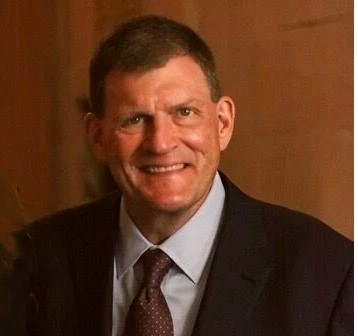The way in which regional influence blends with national power is exemplified by Clay Bennett’s financial trajectory. His estimated $400 million net worth is a testament to the kind of strategic yet low-key wealth he has amassed over decades through a combination of strategic sports investments, energy connections, and civic leadership. His audacious decision to move the Seattle SuperSonics to Oklahoma City, where they became the Thunder and cemented his home state’s place on the NBA map, was especially creative.
Bennett became known as a long-term strategist in spite of public criticism from Seattle acolytes. In addition to owning an NBA team, he also controls its cultural identity through the holding company Professional Basketball Club LLC. He was remarkably successful in transforming Oklahoma City’s economy and bringing professional sports prestige to an area that had previously been eclipsed by bigger metropolitan teams. It is known that he owns more than 0% and less than 19% (George Kaiser owns the remaining 19%) of a team valued at about $3.5 billion in 2025, though his precise ownership stake is still unknown.
Clay Bennett – Personal and Professional Overview
| Detail | Information |
|---|---|
| Full Name | Clayton Ike Bennett |
| Date of Birth | November 14, 1959 |
| Age | 65 |
| Nationality | American |
| Occupation | Chairman of Dorchester Capital, Chairman of Professional Basketball Club LLC |
| Notable Role | Owner of Oklahoma City Thunder (NBA) |
| Estimated Net Worth (2025) | $400 million |
| Marital Status | Married to Louise Gaylord Bennett |
| Children | Christine, Mollie, and Graham Bennett |
| Residence | Oklahoma City, Oklahoma, United States |
| Source for Data | Celebrity Net Worth |
In addition to basketball, Bennett significantly enhanced his portfolio by utilizing long-standing energy investments. He continues to play a fundamental role as chairman of Dorchester Capital, which places him at the center of Oklahoma’s economic strategy. This impact was demonstrated by his numerous leadership positions, such as his 2011–2019 term as chairman of the University of Oklahoma Board of Regents. He developed an incredibly clear vision of civic and economic symbiosis—where business, education, and sports come together to support state development—through these roles.
Bennett entered a tense but historic phase in the early 2000s. He oversaw the $350 million purchase of the Seattle SuperSonics from Howard Schultz, the CEO of Starbucks, in 2006. Public and legal scrutiny grew as his true intentions became apparent, despite his initial claims that he intended to keep the team in Seattle. In the end, Bennett gave up the original team’s name, logo, and colors to create room for the Oklahoma City Thunder, a new team that would bring in a lot of money in addition to excitement. The dispute demonstrated the strength of regional pride and branding—an emotionally charged but profitable metamorphosis.
Bennett developed credibility in the NBA’s inner circles by forming strategic alliances. He positioned himself as an insider and innovator by serving as the chair of the league’s relocation committee. His appearance in David Holt’s 2012 book Big League City serves as an example of how his ascent to NBA prominence parallels Oklahoma City’s development into a center for professional sports. By redefining what a sports mogul could represent in a market outside of traditional epicenters like New York or Los Angeles, Bennett transcended his status as a simple businessman and became a symbol of midwestern ambition.
It is very uncommon for medium-sized cities to acquire an NBA franchise. Under Bennett’s direction, the idea that only coastal giants should participate in elite sports was greatly diminished. His legacy has remarkably resembled that of other legendary owners who molded teams beyond trophies in recent years, such as Steve Ballmer in Los Angeles or Mark Cuban in Dallas. Bennett, however, maintains a low profile in contrast to those flamboyant figures, letting his long-term influence and strategic choices speak for themselves.
His private life further supports a story of constancy and devotion. He has stayed in Oklahoma City and raised three children, Christine, Mollie, and Graham, with his wife, Louise Gaylord Bennett, whom he married in 1981. Through a legacy family that combines media, politics, and sports, his wife—the daughter of Oklahoma media tycoon Edward L. Gaylord—adds yet another level of local sway. His influence extends beyond basketball thanks to this multigenerational relationship.
Bennett created an extraordinarily adaptable portfolio by fusing civic leadership with sports ownership. His involvement on boards and advisory positions outside of the court have guided philanthropic, business, and public education initiatives. Particularly since the Thunder achieved national prominence during playoff seasons and produced league MVPs like Russell Westbrook and Kevin Durant, his leadership has greatly enhanced local pride, employment, and tourism.
Bennett has meticulously planned the franchise’s branding since purchasing it, employing seasoned coaches and executives, and keeping competitive rosters in spite of player changes. The Thunder’s remarkably successful ownership style, which strikes a balance between loyalty and analytics, is responsible for their regular appearance in league discussions regarding both finances and competition. Bennett famously refused to sell even as market values rose, demonstrating his dedication to Oklahoma City and his faith in its long-term emotional and financial return on investment.
Bennett’s net worth is expected to increase in the upcoming years as NBA franchise values continue to soar. While some of his peers use billion-dollar buyouts to make headlines, Bennett’s strategy is remarkably resilient. Even though he doesn’t receive much attention, his legacy is solidified every time a young fan enters Paycom Center wearing a Thunder jersey or a nearby company gains from game-day traffic. Despite being subtle, his influence has been extremely effective in using sport to change a city’s identity.





1 Comment
Thanks for sharing. I read many of your blog posts, cool, your blog is very good. https://www.binance.com/hu/register?ref=IQY5TET4